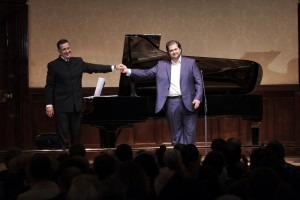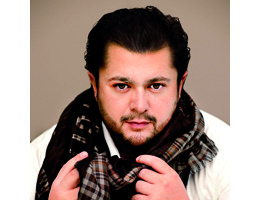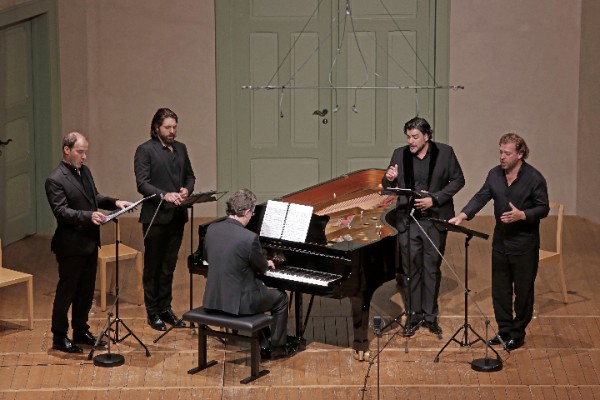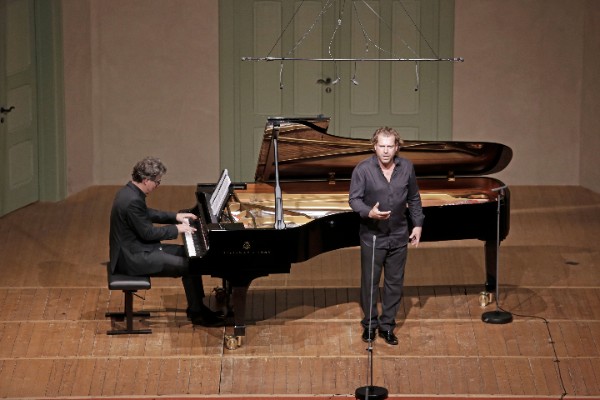
Celso Albelo
Nevertheless, a major platform for rising opera stars on the London music scene is the Rosenblatt Recitals series at the Wigmore Hall. Founded by Ian Rosenblatt, Senior Partner at Rosenblatt solicitors, and now in its fourteenth season, the series has presented singers that have become household names (in the opera world at least) – Joseph Calleja, Juan Diego Flórez, Anna Caterina Antonacci and Irish soprano Ailish Tynan. The series represents a rare opportunity for such singers to be heard in recital, rather than on the opera stage, and in doing so raises the issue of how different the two arenas are. Recitals present a very different challenge for a singer, calling for a different sort of communication based on subtlety and small nuances of colour. There is no individual character around which to base one’s performance, no costumes – the singer has to negotiate the complex issue of representing a variety of protagonists, with their voice as their only communicative tool. Moreover, each singer has to construct their own recital programme, calling for great sensitivity and an ear for contrast and balance.

Ian Rosenblatt
That is not to say that the songs themselves were dull. Indeed, Albelo’s decision to perfom many short, strophic songs (in which the same music is repeated to different text) obliged the performers to find great subtlety in simple music. The stillness that Albelo brought to Turina’s Los dos miedos (‘The Two Fears’) or Guastavino’s Ya me voy a retirar (‘I’m going to go away’) allowed the full resonance of the poetry. Yet not every song was in this vein; Albelo created a gradual shift to the world of bel canto through an exploration songs from the zarzuela tradition, and in the second verse of Penella’s Detén tu lado passo (‘Don’t take another step’) the intensity of Albelo’s repeated invocations to ‘Mitzilán’ anticipated the Donizetti and Verdi set pieces that closed the recital. It was in these works, including the famous arias Una furtive lagrima and La donna è mobile, and his encores È la solita storia and Ah! mes amis that Albelo demonstrated his true colours as a thrilling exponent of the Italian operatic tradition, his brilliant high notes and, perhaps as importantly, a rich low and middle register filling the Wigmore Hall.

Celso Albelo and Juan Fransisco Parra
© Jonathan Rose
The Rosenblatt Recitals offer a rare opportunity to see major operatic artists ‘up close’ in both physical and artistic terms. Long may they continue.
The next Rosenblatt recital on October 21 at London’s Wigmore Hall features Californian soprano Angel Blue.
Official websites:
Celso Albelo
Ian Rosenblatt
Rosenblatt Recitals
Celso Albelo “La donna e mobile” Rigoletto
Celso Albelo canta “Madrigal”



